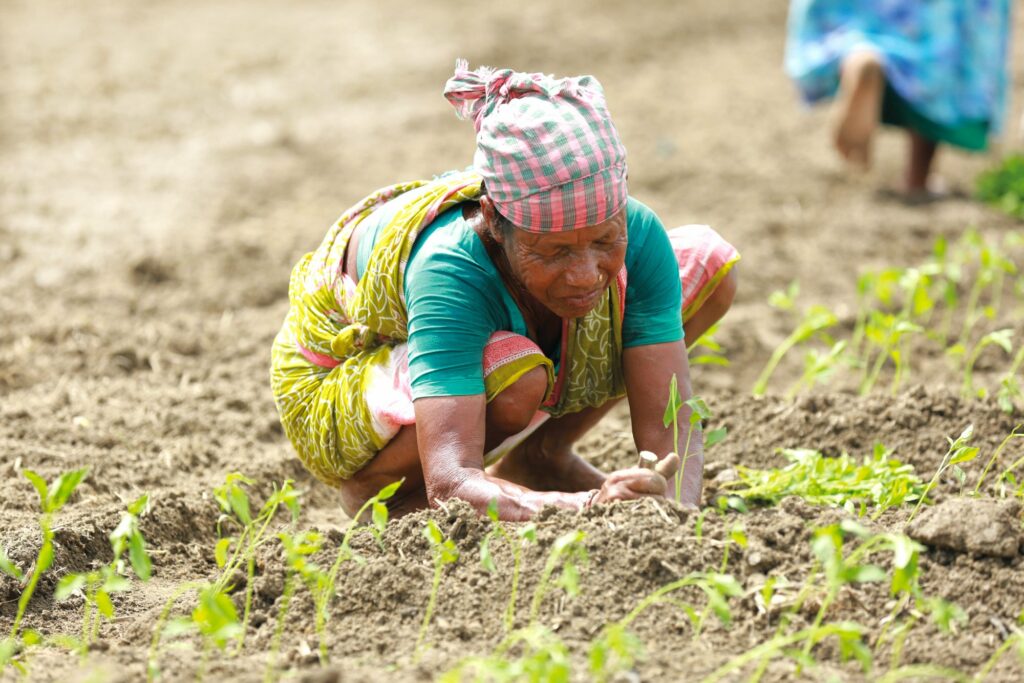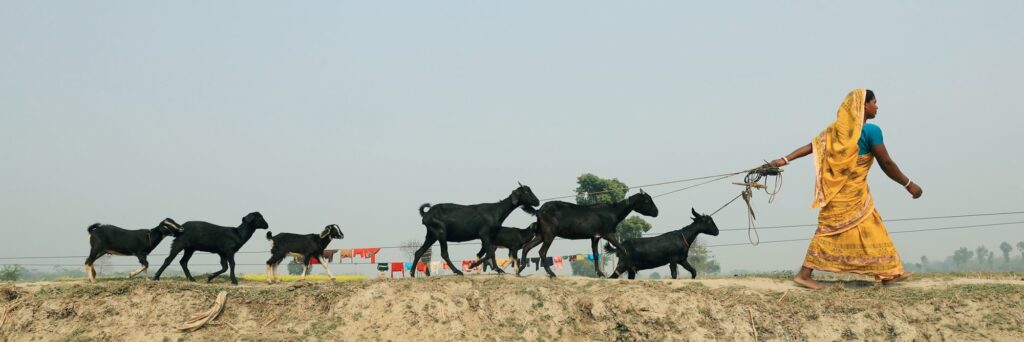In India, the “new poor” are mainly people who live in rural areas and belong to marginalized groups. Poverty caused by the COVID-19 pandemic exacerbates inequalities among population groups, as well as the vulnerability of a large segment of the population to the effects of climate-related crises.
This multi-country project grant targets families living in West Bengal, India and Bangladesh who are severely affected by malnutrition. It is therefore all the more important that the project participants, who previously lived in extreme poverty, could begin to generate sustainable income, use their own self-help structures – among other things, to gain access to state benefits – and thus strengthen their economic and social resistance and their ability to adapt.
The measures include the joint creation of their own family development plan, Based on these development plans, the women of the families received start-up capital in the form of agricultural inputs. The combination of means of production that yield short-term profit (e.g. vegetable seeds,plant seedlings, ducks, chickens, etc.) and more long-term main sources of income (e.g. sheep,goats, etc.) allows families to be as diversified and climate resilient as possible throughout the year.
For example, in training sessions on climate-resilient farming systems, all participants learn not only procedures for improving water management, selecting drought-resistant seeds, and maintaining or improving soil fertility under difficult climatic conditions, but also how to protect their crops in the event of disasters through simple and inexpensive adaptation measures (e.g., by creating raised beds).
Scaling up risk mitigation strategies in the project region, which is heavily impacted by climate change, is essential to ensure that participating families can sustain their sources of income. To this end, the establishment of a joint savings program is encouraged, under which the women regularly set aside smaller amounts as soon as they are able to generate initial profits from their incomes. In addition, a risk fund is available for the loss of productive assets due to animal diseases or natural disasters, which ensures that families do not fall back into poverty.
The village groups initiated in the project support each other in weekly meetings on economic, but also health issues as well as (women’s) rights.
Disaster management training has already identified volunteers who want to become helpers.
Project executing agency: Netz Partnerschaft für Entwicklung und Gerechtigkeit e.V.
Project partner: Development Research Communication and Services Centre
Funding year: 2021-2022
Project no.: 130-21 A



